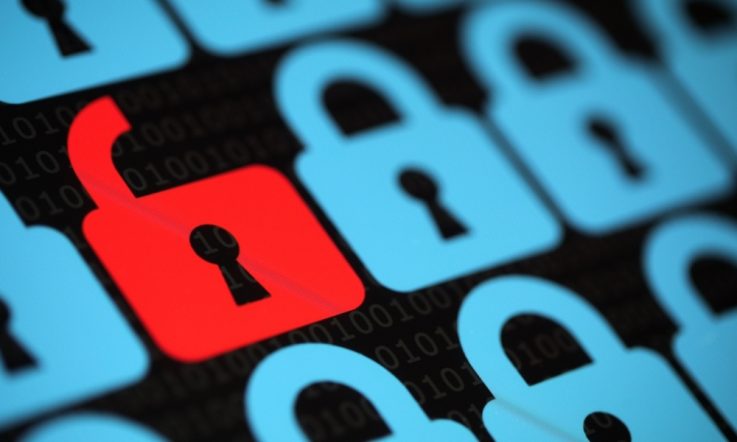It is well-established that principals and teachers owe to their students a duty of care to protect them from reasonably foreseeable harm.
In the Richards v State of Victoria case of 1969, the duty was expressed to mean ‘a teacher is to take such measures as are reasonable in the circumstances to protect a student under the teacher’s charge from risks of injury that the teacher should reasonably have foreseen’.
If a student were to sustain an injury or harm, questions will be asked of the school as to what precautions the school could reasonably have been expected to take in order to avoid the student from sustaining injury.
Similarly, questions will be asked if there has been an infringement of an intervention order.
There are instances where a school will be aware that a person associated with the school is protected by, or subject to an intervention order. While a school is not bound to enforce the terms of an intervention order in circumstances where they are not named in the order, knowledge of an intervention order should be considered a ‘red flag’ to principals and teachers.
What is an intervention order?
Every state in Australia has a form of intervention order. In Victoria there are two types of intervention orders. These are Family Violence Intervention Orders and Personal Safety Intervention Orders.
Family Violence Intervention Orders are made pursuant to the Family Violence Protection Act 2008 (Vic.). The Magistrates’ Court of Victoria and the Children’s Court of Victoria issue Family Violence Intervention Orders.
The purpose of a Family Violence Intervention Order is to protect family members against the behaviour of another family member (the Respondent). The Court must be satisfied that the Respondent has committed family violence against the affected family members and is likely to continue to do so again.
Family violence includes harmful behaviour that is used to control, threaten, force or dominate a family member through fear. It includes physical abuse, sexual abuse, emotional or psychological abuse and also financial abuse.
The terms of the Family Violence Intervention Order will prohibit a Respondent from committing one or more specified behaviours including being unable to approach or contact family members, and being outside a specified distance of where the family member attends school, lives and works.
The other type of intervention order is a Personal Safety Intervention Order, which is also issued by the Magistrates’ Court of Victoria or the Children’s Court of Victoria.
The Personal Safety Intervention Order is made pursuant to the Personal Safety Intervention Orders Act 2010 (Vic.) to protect an individual from the behaviour of another individual, outside of the family sphere.
The Court will make a Personal Safety Intervention Order if it is satisfied that the Respondent has committed assault, harassment, property damage, made a serious threat or engaged in stalking behaviour towards another person.
In the school environment, a situation may arise where a student is subject to a Personal Safety Intervention Order. The protected person may be another student and both students may attend the same school.
Because the Personal Safety Intervention Order relates often to instances of stalking, the Respondent may be prohibited from having any contact with the protected person, or contacting the protected person by electronic communication. Such a situation will have serious ramifications for students in the school setting.
How should a school respond to an intervention order?
It is a matter for the school to determine if they want to be notified about intervention orders and request parents or guardians to do so. Once notified, however, a school is required to take the existence of the intervention order into account when performing its duty of care. Once a school has the knowledge, it cannot be ignored.
If a school is on notice that a student is protected by or subject to an intervention order, the principal and teachers should act in a timely manner to understand the terms of the intervention order and take appropriate measures to respond to the order. The school can then assess the gravity of the situation, which will assist with determining what measures need to be put in place.
Schools should have a policy in place to address issues with intervention orders and ensure that they do not inadvertently breach a duty of care owed to students, and, if there is no policy or plan, should consider implementing one.
Schools should consider the following steps in their policy or plan:
- Request a copy of the order;
- Record the details of the order;
- Communicate the details with staff;
- Put arrangements in place in respect of school classrooms, events and activities and communicating these arrangements with staff;
- Maintain communication with the student, parents and guardians so that all parties are kept updated with matters that may affect the person protected by the intervention order;
- Ensure that the school takes steps to make certain that instances of non-compliance with the intervention order are reported to the school or police if required, so that the school can modify its arrangements to take into account any increased risk of harm or injury;
- Avoid taking sides or becoming involved in the merits or reasons for the making of the intervention order; and
- Do not provide statements, letters of support or information to students, parents, guardians or any other person who is subject to or protected by an intervention order, or who is contemplating seeking an intervention order and seek legal advice if such information is requested
With the increasing amount of volunteers in schools, there have also been incidences where adult family members have intervention orders preventing them from being around students who are members of the extended family. In this case, if they are aware of the intervention order, it is important for the school to realise that there may be a risk of harm to a student by the adult respondent to an intervention order.
In this situation, restricted volunteer duties should be provided. Or alternatively, schools may choose to suspend the Respondent’s right to volunteer for the period of the intervention order. This may pose issues when volunteer hours form part of a student’s enrolment consideration.
There are serious consequences if the conditions of an intervention order have been breached. If the school believes there has been a possible breach of the terms, they should take details and report the incident to the police and/or the Department of Education and Early Childhood Development, if appropriate in the circumstances.
Cases
Richards v State of Victoria [1969] VR 136 (Austl.)
This is a general article written specifically for Teacher. It is designed to give a brief overview of the subject at hand at the time of publication and should not be considered legal advice.
Is there a particular issue that you would like to see addressed in Teacher?
Let us know in the comments below, or email the editor team via teachereditor@acer.edu.au



